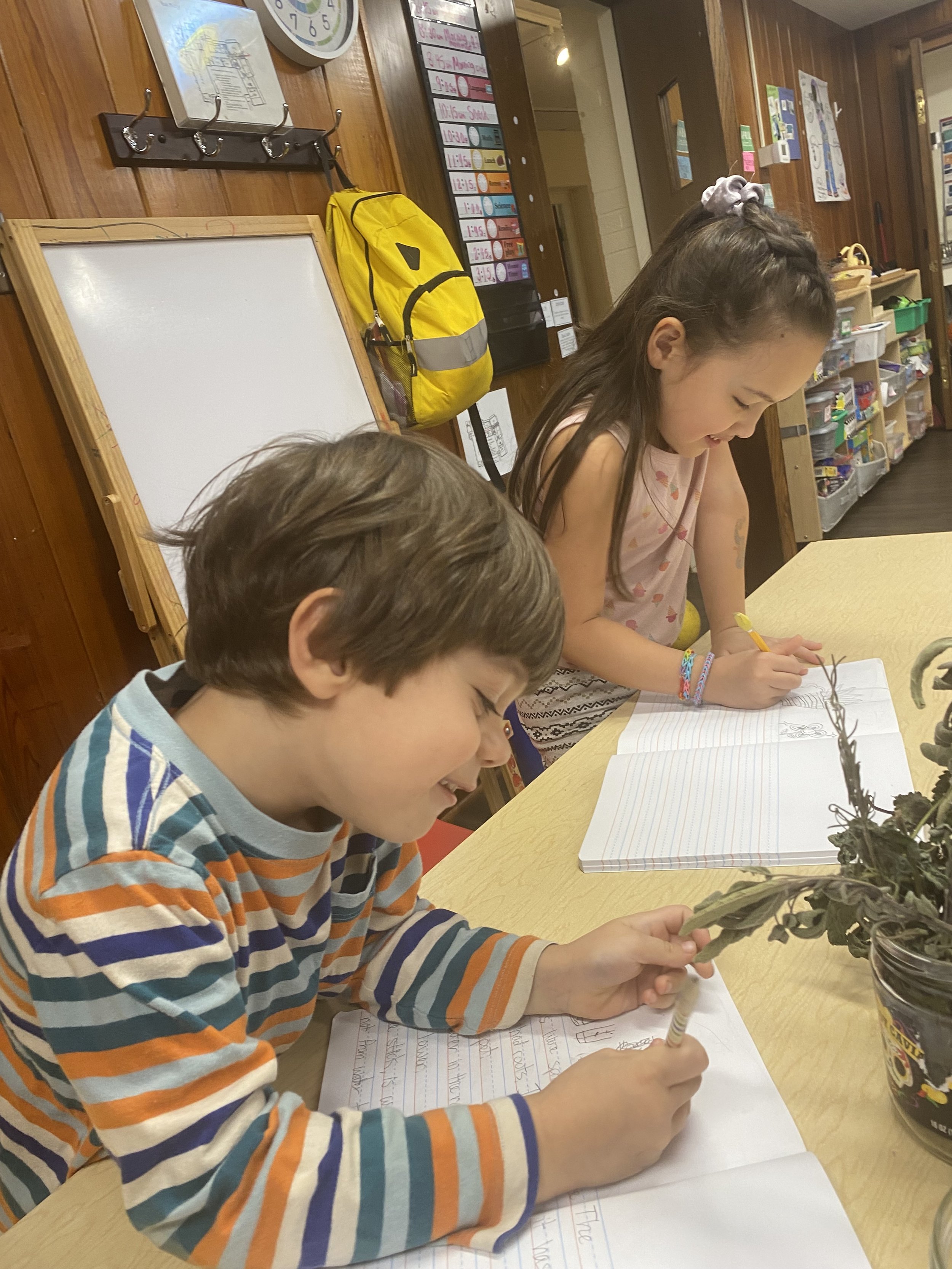
CURRICULUM
The child … is the curriculum.
- Rudolf Steiner
Inquiry-Based Curriculum
Our student-centered, inquiry-based curriculum includes foundational skills in reading, writing, and math, and structured units of inquiry, in both science and social studies allowing students to learn about the world and how they can make a difference.
The result is rich interdisciplinary fields of study and thematic lessons that are relevant, engaging, and exciting to the children at Springwell.
We follow the Common Core State Standards when assessing and planning academic progress for our students for math and English Language Arts. For our reading instruction, we use Wilson’s Fundations for early readers. All work is adapted to meet students where they are at, regardless of grade level or age.
Our Ethos: Academic Musings
Our Inspirations
Our innovative curriculum combines elements of progressive models of education including Reggio Emilia, Montessori, and Waldorf approaches to education. We balance whole group and individual student-led learning activities, with carefully trained staff who engage students in learning activities, then observe, document, reflect, and plan new ways for students to explore their developing understandings on a daily basis.
Reggio Emilia.
At Springwell, we draw inspiration from Reggio Emilia’s deep respect for the child’s learning process and innate curiosity. We embrace the “Hundred Languages” of children—honoring the many ways young people think, create, and express themselves.
Middle schoolers write, film, and produce original satirical horror films to showcase their understanding of the Hero’s Journey. Students create comic strips and code video games to demonstrate their knowledge of planetary bodies and habitability. These projects reflect our belief in sustained, interdisciplinary exploration of meaningful topics, guided by student voice and agency.
We thoughtfully integrate all Maryland Core Standards—including science, history, and social studies—into our thematic units, ensuring academic rigor alongside creative exploration. Ongoing documentation and reflection are essential parts of the learning process for both students and teachers.
While Reggio Emilia was originally designed for early childhood, we imagine what it could look like if extended through the K–12 years in today’s complex world. That vision lives and breathes at Springwell.
Montessori.
At Springwell, we’re inspired by the Montessori tradition of hands-on learning and thoughtfully designed materials that make abstract concepts concrete. Developed over a century ago by Dr. Maria Montessori—the first woman pediatrician in post-war Italy—this approach empowers students to move at their own pace within a structured environment, engaging deeply with math, language arts, and the world around them.
We also embrace Montessori’s philosophy of mixed-age learning, where children are given the opportunity each day to be both apprentices and mentors—building confidence, leadership, and empathy across ages.
While we are not a Montessori school and do not follow the Montessori curriculum, we honor its spirit through our commitment to independence, curiosity, and purposeful learning.
Waldorf.
Springwell is deeply influenced by Waldorf education’s respect for the natural unfolding of each child’s development. We never rush childhood. Instead, we make space for play, imagination, and creativity as essential ways of learning and making sense of the world. We honor this by integrating the arts throughout academic learning, prioritizing movement and nature, and protecting time for wonder and open-ended exploration. Our classrooms are designed to feel warm, beautiful, and alive—with thoughtful materials and intentional rhythms that support focus, connection, and joy.
While we are not a Waldorf school and do not follow the Waldorf curriculum, we honor its values through our commitment to whole-child learning, self-expression, and developmental integrity.









To become a minted Harvard lawyer, I studied myself sick.
That nervous anxiety for performance has been deeply ingrained in my adult life to this day.
I prepared for the LSATs so rigorously—with endless logic games, prep courses, and timed drills—that I got physically sick every other week leading up to the test. I scored in the 97th percentile; but did that test measure anything meaningful? It rewarded me for speed, for recognizing repetitive logical patterns, for spitting out correct answers. But none of these skills define a great lawyer.